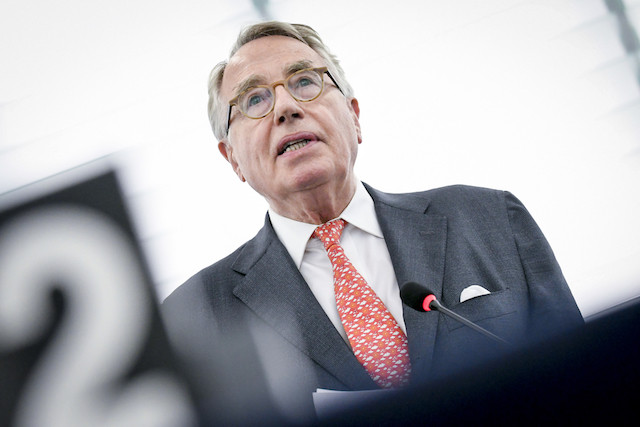Wolf Klinz had alleged that the Luxembourg Freeport (and other such facilities) could be used as a hive for “money laundering and tax evasion” in a letter sent to Jean-Claude Juncker, the commission president, on 8 January.
The freeport, located at Findel airport, is a high security depot for valuable items like artwork and wine. Owners store their goods via intermediaries that are regulated by Luxembourg’s customs service.
Commission found “no evidence”
Klinz sits on the European Parliament’s Special Committee on Finance Crimes, Tax Evasion and Tax Avoidance, known as the “TAX3” committee. In his letter, Klinz outlined several suspicions that had been raised during TAX3 committee hearings.
Juncker asked Pierre Moscovici, the European tax and customs commissioner, to look into the matter. Moscovici wrote back to Klinz on 28 February, saying an EU investigation found: “that there was no evidence showing that free zones in the EU are systematically used to commit fraud.”
Moscovici said in the letter, seen by Delano, that such sites facilitate international trade by delaying several tax and customs procedures until the goods are shipped to their final destination. “Free zones are therefore useful to simplify commercial operations.”
EU investigators checked the Luxembourg Freeport as part of an inquiry into “identifying possible undesired activities regarding customs procedures, import duty and/or tax evasion, as well as money laundering or terrorism financing”, Moscovici wrote.
“If any systematic misuse or fraudulent behaviour were detected, the Commission would take the appropriate actions in order to deter such undesired activities,” according to Moscovici.
“No political will” to look for fraud
The MEP reckoned the response was patronising. Klinz said in a statement emailed on 12 March that:
“the worrisome allegations brought to light in the TAX3 hearing were unfortunately not met with serious concern by the President nor the Commissioner responsible, but rather with condescension and dismissal. What’s clear from the response is that there is no political will to seriously investigate the possibility of possibly fraudulent activities and irregularities related to the management of Le Freeport Luxembourg.”
Klinz said that the commission’s conclusion was: “contrary to the evidence brought to TAX3 committee by the expert witnesses”.
A spokeswoman for the Luxembourg Freeport told Delano on Tuesday that it was satisfied with Moscovici’s letter and had no further comment.
Review in progress
The European Commission had inspected the Luxembourg Freeport in May 2015 during an investigation of potential customs irregularities and financial crimes in several EU countries, Delano has been told by a source who did not want to be identified.
The commission is conducting another review, which it plans to publish later this year. A European Commission spokesman told Delano on 14 February that:
“The Commission is committed to increased transparency when it comes to combating money laundering, tax evasion and aggressive tax planning, including when it comes to the use of free zones.
“We are not aware of any immediate causes of concerns when it comes to the use of free zones in the European Union. Nevertheless, such zones can potentially pose risks of money laundering and tax evasion. To that end, the Commission’s 2019 Supranational Risk Assessment will include a review of free zones across the EU. Following this assessment, the Commission can issue recommendations in order to mitigate possible risks identified.
“The Commission is also actively participating in the OECD’s work toward establishing guidelines for countering illicit trade related to free zones and a new Code of Conduct for free zones.”
